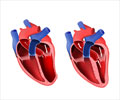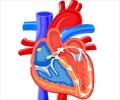- Amiodarone: a unique antiarrhythmic agent - ( https://pubmed.ncbi.nlm.nih.gov/6349912/ )
- Amiodarone : Medlineplus - (https://medlineplus.gov/druginfo/meds/a687009.html )
- Amiodarone - (https://www.ncbi.nlm.nih.gov/books/NBK482154/ )
- Benefits and Risks of Long-term Amiodarone Therapy for Persistent Atrial Fibrillation: A Meta-analysis - (https://www.ncbi.nlm.nih.gov/pmc/articles/PMC2664595/ )
Amiodarone Medication Information
Discover comprehensive details about Amiodarone, including its pronunciation, uses, dosage instructions, indications, and guidelines on how and when to take it or avoid it.
The updated prescription information covers potential side effects, precautions, warnings, and storage recommendations.
Additionally, explore the Amiodarone brands available in India and internationally, along with pricing information. For personalized advice, consult your healthcare provider.
Generic Name : Amiodarone Pronunciation : A-mi-OH-da-rone ICD Code : Y52.2 Therapeutic Classification : AntiarrhythmicsBrand Names or Trade Names of Amiodarone
India :
International :
Cordarone and Pacerone
Why is Amiodarone Prescribed? (Indications)
This medication is used to treat life-threatening irregular heart rhythms (arrhythmias) and to maintain a normal heart rate in patients who have not responded to other medications. It is an antiarrhythmic drug.When should Amiodarone not be taken? (Contraindications)
It should not be administered to patients allergic to the drug or to iodine, pregnant women, shock due to a cardiac cause, and some heart conditions such as sinus node dysfunction and severe heart block.What is the dosage of Amiodarone?
Oral:Ventricular arrhythmias- Adult: 800-1,600 mg/day in 1-2 divided doses for 1-3 week until initial therapeutic response is achieved then reduce dose to 600-800 mg/day in 1-2 divided doses for 1 month. Maintenance: 400 mg/day; lower doses may be used for supraventricular arrhythmias. Close monitoring of the patient is recommended. Use the minimum effective dose. Liver impairment: Dosage reduction may be necessary.IV Recommended starting dose is approximately 1,000 mg over the first 24 h administered as follows: rapid administration of 150 mg over first 10 min (15 mg/min), followed by 360 mg over next 6 h (1mg/min), then 540 mg over remaining 18 h (0.5 mg/min). After first 24 h, continue maintenance infusion rate of 0.5 mg/min (720 mg/24 h).
How should Amiodarone be taken?
It comes as a tablet to take by mouth. It is usually taken once or twice a day with or without food. (Take consistently with or without meals. Take with meals if high dose or to reduce GI discomfort.). Injection administered into the vein by a health care provider.What are the warnings and precautions for Amiodarone?
• Close monitoring is recommended as AMIODARONE may worsen arrhythmia especially when used concurrently with other anti-arrhythmic drugs or drugs that prolong QT interval.• Corneal refractive laser surgery is not recommended in patients on amiodarone treatment. Due to corneal microdeposits, Drivers are not advised to drive at night as they may be dazzled by headlights.
• It may cause hypotension and slow heart beat, increase risk of liver toxicity, visual disturbance/impairment; lung damage; monitor for pulmonary toxicity e.g. acute respiratory distress syndrome.
• Monitor liver functions regularly.
• It may affect defibrillation or pacing thresholds of cardiac devices.
• Correct electrolyte imbalance before starting treatment.
• Caution when used in patients undergoes surgery, hepatic impairment, thyroid disease, elderly, breast feeding.
What are the side effects of Amiodarone?
Heart- Abnormal heart rhythm, heart failure, heart attack, low blood pressure, sinus arrest.Central Nervous System- Abnormal gait/ lack of coordination, dizziness, fatigue, uneasiness, tingling, tremor/abnormal involuntary movement, headache, sleep disturbances, confusion, delirium, disorientation, pseudotumor cerebri( increased pressure inside the skull).
Skin- Sensitivity to sunlight, flushing, redness, severe allergic reactions, itching, blue-gray discoloration, skin cancer.
Eye and ENT- Visual disturbances, abnormal smell sensation, ringing in the ears, may lead to blindness.
Gastrointestinal- Nausea, vomiting, loss of appetite, constipation, abdominal pain, abnormal salivation, abnormal taste, inflammation of pancreas.
Genitourinary- Acute kidney failure, inflammation of testis, impotence, decreased sexual activities.
Blood- Blood clot abnormalities, anemia, and decrease in blood cells.
Liver- Abnormal liver function tests, liver disorders, jaundice.
Local- Swelling, redness, necrosis, pain, inflammation , blood clot.
Musculoskeletal- Muscle weakness, muscle pain, muscle damage.
Respiratory- Cough, difficulty in breathing, lung infiltrates, wheezing, lung inflammation, fibrosis.
Miscellaneous- It may cause severe allergic reactions, leg swelling , fever and increased secretion of antidiuretic hormone. It interferes with thyroid function and may increase or decrease thyroid hormone levels.
What are the other precautions for Amiodarone?
Avoid excessive sunlight exposure due to increased risk of photosensitivityWhat are the storage conditions for Amiodarone?
Injection: Store at 15-25°C. Store it in airtight container and keep away from children.Schedule : H
Prescription drugs - Drugs to be sold only under the prescription of a Registered Medical Practitioner.
 MEDINDIA
MEDINDIA
 Email
Email










